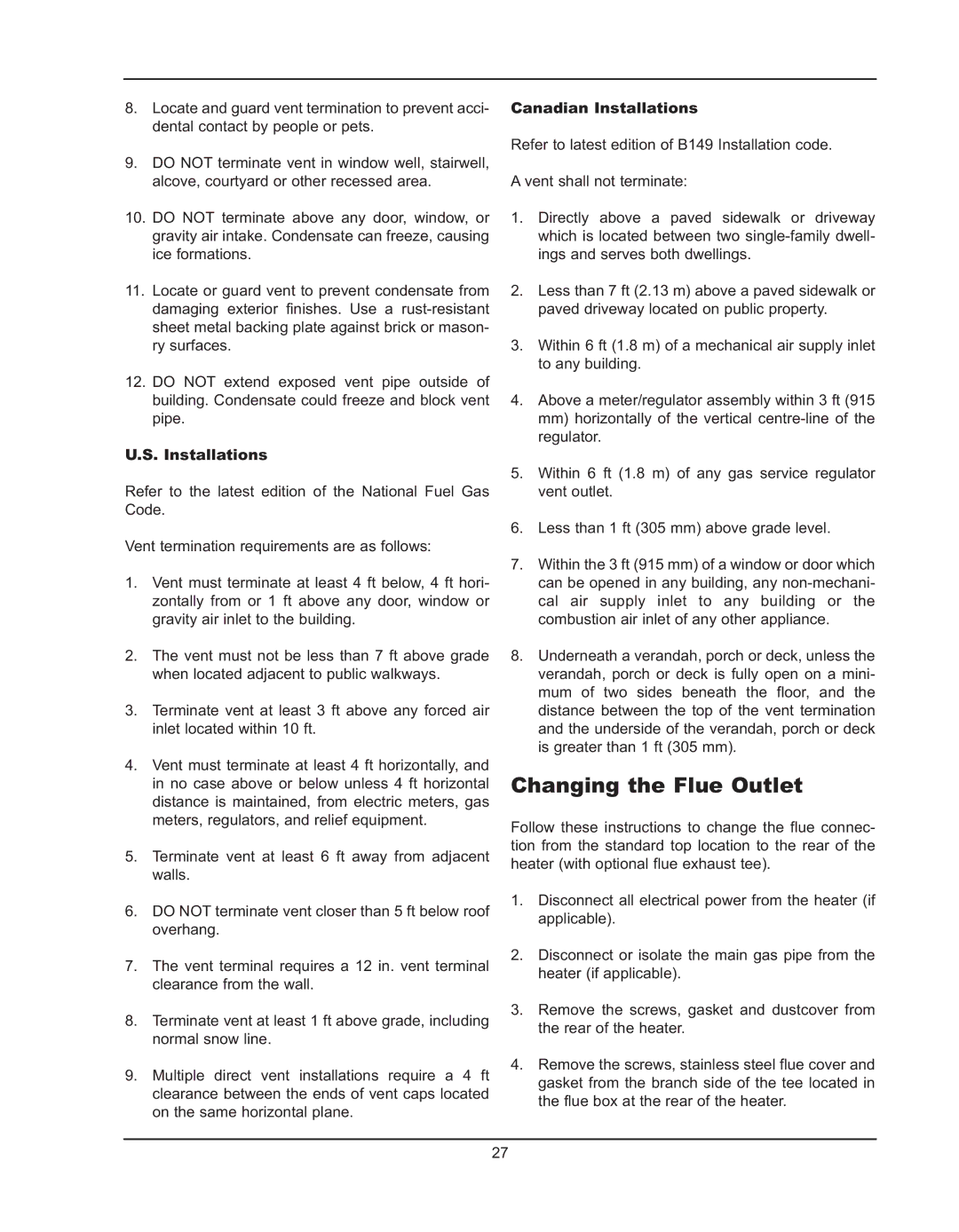992B specifications
The Raypak 992B is a highly regarded commercial boiler known for its efficiency and reliability in heating applications. Designed for a range of installations, it is particularly favored in schools, hotels, and various commercial settings where dependable heating is crucial. One of the standout features of the Raypak 992B is its impressive thermal efficiency rating, often exceeding 90%. This efficiency translates into lower energy costs and reduced environmental impact, making it a smart choice for eco-conscious businesses.The Raypak 992B comes equipped with advanced technologies that enhance performance and ease of use. Among these technologies is the high-precision digital control system, which allows for accurate temperature regulation and monitoring. This feature ensures optimal performance and minimizes energy waste, further contributing to the unit's cost-effectiveness. The boiler also utilizes a modulating burner system, enabling it to adjust flame size based on real-time heating demands. This adaptability not only enhances efficiency but also improves overall comfort within a facility.
Another significant characteristic of the Raypak 992B is its robust construction. Built with durable materials designed to withstand demanding operating conditions, this boiler is engineered for long-lasting performance. Its compact design is an added benefit, facilitating installation in areas with limited space. The unit is also equipped with a stainless steel heat exchanger, which provides superior resistance to corrosion and enhances heat transfer efficiency.
Safety features are also paramount in the design of the Raypak 992B. The boiler includes multiple safety controls and alarms to prevent overheating and maintain safe operating conditions. This diligence in safety ensures peace of mind for operators and reduces the risk of unexpected downtime.
In summary, the Raypak 992B stands out as a top choice for commercial heating solutions, combining high efficiency, advanced technology, and rugged construction. Its features cater to a wide range of heating needs while prioritizing safety and economy. With its impressive performance capabilities, the Raypak 992B continues to be a reliable partner for facilities seeking optimal heating solutions.

